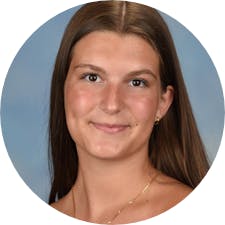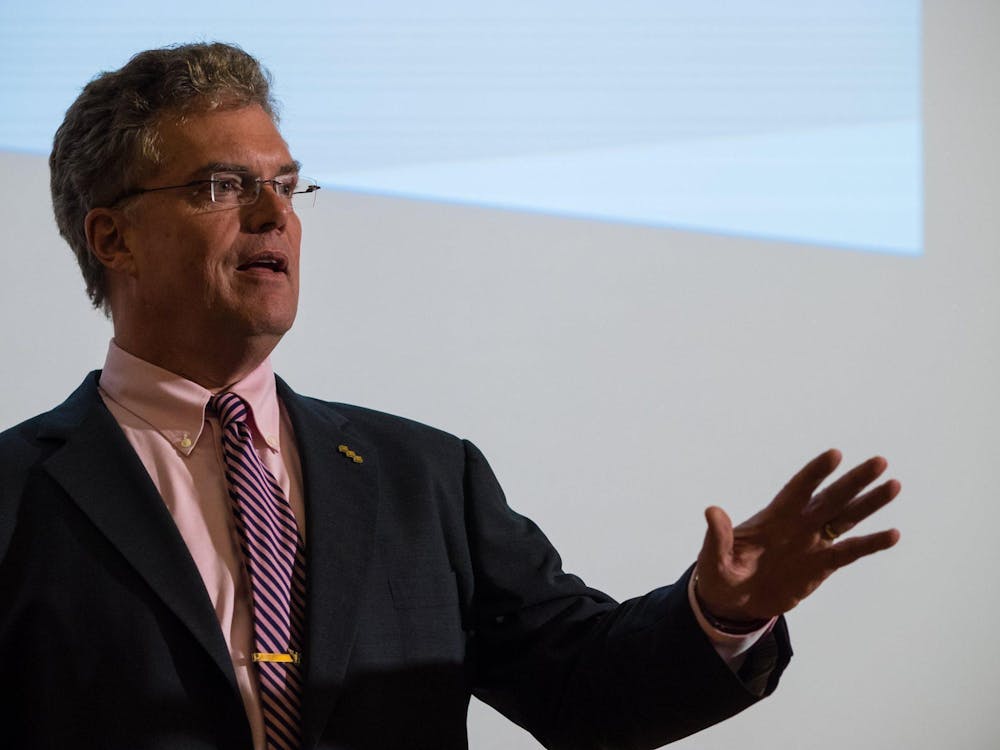Political science professor Michael Munger is trying to serve his community by running for office again.
Munger previously ran as a Libertarian Party candidate in North Carolina's 2008 gubernatorial election, becoming the first third-party candidate to appear in a televised debate and receiving about 3 percent of the vote. He has previously run for state senator and state representative. Now he's running for state Congress again, this time to represent North Carolina's 40th District in the House of Representatives.
Munger said his campaign was largely inspired by his own party switch in 2003, when he quit being a Republican after the U.S. invasion of Iraq. This prompted Munger to register as a Libertarian, but he soon faced third-party restrictions on North Carolina's ballots.
Mr. Munger is campaigning for third-party representation as part of an effort to dismantle the influence of the two-party system. Munger said his gubernatorial campaign had 5% to 6% support in public opinion polls and was able to participate in the debate. He ultimately received 2.8% of the vote in the 2008 gubernatorial election, achieving the 2% threshold for the Libertarian Party to remain in North Carolina's future votes.
Perhaps the biggest motivator for running for the District 40 seat was Munger's position as a political science professor.
“More political scientists need to have a thorough understanding of politics,” Munger said. “…I think more people should participate in politics at this level. Even if you lose, you can learn a lot.”
Munger believes that faculty should engage in three activities: research, teaching, and service, and his campaign is an act of service. This is complemented by his public speaking, attending conferences, and discussing policy analysis with high school students.
Munger's platform focuses on three issues: access to education, housing reform, and dismantling the current alcoholic beverage system.
Munger advocates for greater “responsibility and participation” in the education system and supports increased school choice for parents. This includes more funding through vouchers and other sources to help public schools compete with private schools.
Munger cited the 1997 Leandro v. North Carolina Supreme Court case, which “affirmed the state's constitutional right to a sound basic education for all children starting in early childhood,” and said North Carolina had It pointed out that the government was engaging in “unconstitutional discrimination.” Because the southeast region of North Carolina “couldn't provide education with the level of funding that they had.”
“The state is falling short of its constitutional obligation to ensure that all citizens have access to an adequate K-12 education,” he said.
Munger emphasized that education reform provides a “common experience” and gives “an opportunity for people to be part of something bigger than themselves.”
Munger said many cities in the state, including Durham, lack affordable housing because certain laws and regulations make it “effectively illegal to build new housing.” Stated. Munger wants to ensure that North Carolina becomes a “leader rather than a laggard” in housing policy by seeking to reform “over-government regulation of new buildings.”
“The third thing I will focus on is dismantling the unwieldy, extremely expensive and frankly ridiculous alcoholic beverage control system that North Carolina has in place,” Munger said, famous He claimed that money was being taken from taxpayers to pay people to run ABC stores. The reasons include “inconvenience, high prices, and lack of options.”
Munger believes the solution to this problem is simple. It is to change the state's alcohol control system to the regulated retail system that exists in other states.
As a resident of District 40, which includes northwestern Wake County, Munger believes in building close relationships with his constituents.
“A politician's job should be to help people achieve their goals and give children a way to achieve their hopes and dreams,” Munger said.
Get The Chronicle delivered straight to your inbox
Sign up for our weekly newsletter. You can cancel at any time.

Michelle Voyke is a first-year student at Trinity University and a reporter in the news department.


